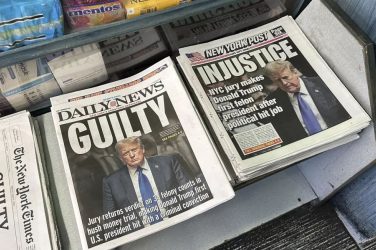
Brazil’s Justice Minister Alexandre de Moraes said the ban on political demonstrations at the Rio 2016 Olympics competition arenas is an administrative measure, but asserted no restriction on freedom of expression will be tolerated.”Freedom of expression is a constitutional right, so it must, and will, be upheld. That’s one thing. This legal and administrative ban, which is not only imposed by the International Olympic Committee (IOC), is another thing.
“FIFA had also obtained a specific law on that. The Supreme Court ruled that banning banners and posters at venues was in accordance with the constitution. There are similar regulations in the national soccer tournament,” Moraes said in Rio de Janeiro.
He pointed out, however, that people have the right to boo and “offend within political and ideological limits,” provided they do not create disruptions to the games.
The IOC explained that expelling fans carrying posters and banners with political, religious or commercial slogans is not the standard procedure if they promise not to continue with the protest.
This is set out in the Rio 2016 Organizing Committee regulations, which explicitly prohibit “items with a political or religious theme” and have been used at previous games.

The IOC maintains sport is neutral ground and should not be used for political purposes. It goes on to say the Olympic Charter, a set of principles for the organization of the Games and the Olympic movement adopted since 1898, set forth that the committee should “oppose any political or commercial abuse of sport and athletes.”
Moreover, it states, “No kind of demonstration or political, religious or racial propaganda is permitted in any Olympic sites, venues or other areas.”
Last Saturday, a spectator was forcibly removed by the National Force at the shooting finals in Rio because he was carrying a poster with the words “Temer Out” against Brazil’s interim President Michel Temer.
That same day in Belo Horizonte, ten spectators were also escorted out of the stadium because they were wearing T-shirts printed with big letters forming the same slogan.
In the opinion of former Chief Supreme Court Justice Ayres Britto, except for disrupting events that could interfere with the competitions, these demonstrations are no ground for the expulsion of spectators from the competition venues, because they are warranted by basic principles of freedom of expression and citizen’s rights set forth by the Constitution.
Violence Against Muslims
Attacks against Muslims have increased in Rio de Janeiro since a group of people was arrested on suspicion of planning to carry out terrorist acts during the Rio 2016 Olympic Games.
The fact was reported to Justice Minister Alexandre de Moraes by the National Union of Islamic Associations (UNI) vice-President Ali Hussein Taha at the Federal Police Superintendency in Rio de Janeiro, where leaders of the Brazilian Muslim community convened to address cases of discrimination and intimidation facing Muslim people in Brazil.
“We’re actually Brazilian nationals. There are nearly 1.5 million of Brazilian Muslims in the national territory, from different generations. Above that, we’re Brazilians, and religion should be no grounds for treating people better or worse, and this is the issue we’ve come to talk about with the minister. We have brought forward a collaboration plan and we’ll wait and see how it unfolds,” said the head of the UNI.
Taha mentioned a case in which a Muslim woman was physically attacked in Copacabana, south Rio de Janeiro, on August 6. “Of course, this is what happens every time the media publishes a story linking terrorism and Islam,” he argued.
The justice minister said that confusing a religion with terrorism is unacceptable. “Islam is a religion, it has the largest number of followers individually, who profess the same ideals as Catholicism, as Christianity, and we must not take them for criminals who commit acts of terrorism,” he said.
Moraes went on to say that the ministry as well as the federal authorities will exchange information with Muslim associations in order to fight prejudice against this portion of the population.
The Muslim community in Brazil used the Rio 2016 Games to make their faith more widely known and redress prejudices. Since August 2, a group has traveled through a number of cities talking to both Brazilians and tourists on the street and conveying a message of peace. They hold informative signs about Islam and explain their faith to passersby in a bid to dissociate it from terrorism.
ABr




